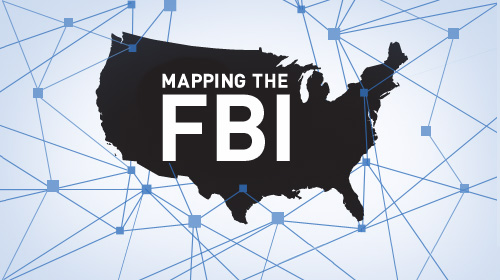
In 2008, the federal government launched programs to collect so-called "Suspicious Activity Reports" around the country. Government documents obtained by the └¤░─├┼┐¬Ż▒Żß╣ű show that these programs have operated without adequate privacy safeguards or guidance on the definition of "suspicious activity," resulting, as we feared, in violations of Americans' First Amendment and privacy rights, as well as racial and religious profiling.
The proof is in the government's own documents. The └¤░─├┼┐¬Ż▒Żß╣ű released today its latest Eye on the FBI Alert as part of our Mapping the FBI campaign. The alert highlights government documents we obtained through a lawsuit to enforce a 2010 Freedom of Information Act request for records about the FBI's eGuardian program ÔÇô a nationwide system of collecting and sharing Suspicious Activity Reports from the public and law enforcement and intelligence officials across the country.
The documents confirm that nationwide suspicious activity reporting programs, including eGuardian, another program called the Information Sharing Environment Suspicious Activity Reporting Shared Spaces, and the umbrella Nationwide Suspicious Activity Reporting Initiative (of which the first two systems are a part), give broad discretion to law enforcement to collect information about innocent people engaged in commonplace activities, and to store data about these people in criminal intelligence files without any evidence of wrongdoing. The documents also show that there has been persistent confusion among law enforcement about the guidelines governing these programs ÔÇô including what exactly constitutes "suspicious" behavior.
We've obtained emails showing that several fusion centers and state and local law enforcement agencies have resisted using eGuardian because of concern over the inadequacy of the system's privacy policy, the lengthy retention of data in the system, and a lack of guidance about how the system works. We've also secured documents demonstrating that vague and expansive definitions for "suspicious activity" have confused law enforcement, underscoring the └¤░─├┼┐¬Ż▒Żß╣ű's concern that Suspicious Activity Reports will be based on racial or religious profiling or the exercise of First Amendment rights, rather than evidence of wrongdoing. A few examples:
- A 2010 email demonstrates that an official of the State of Iowa Intelligence Fusion Center complained about the "huge disconnect on how eGuardian is to work" and reported that the "local FBI field office" lacked "guidance on how or when to use eGuardian".
- A 2012 email chain reported that the Minnesota Joint Analysis Center would not send Suspicious Activity Reports to eGuardian at all and that the New Jersey Fusion Center would only send reports after vetting them first.
- A 2009 report noted that even after revision of the so-called ISE-SAR Functional Standard, which defines "suspicious activity" for inclusion in nationwide suspicious activity reporting programs, the Boston Police Department (p. 81) "recommended that the appropriate threshold be clearly defined for entering a SAR" into the system, warned against "the entry of information . . . that is not of value," and emphasized the need to "avoid large volumes of information being ÔÇśdumped' into the system." Similarly, the Miami-Dade Police Department (p. 115) recommended that nationwide suspicious activity reporting "needs to stay focused on behaviors and not individuals," suggesting that inadequate guidance about the definition of "suspicious activity" would result in inappropriate profiling.
The result of this lack of guidance is predictable: The definition of "suspicious" is left to the eye of the beholder, reflecting that person's perception and biases and leading to the violation of First Amendment and privacy rights, and racial and religious profiling. This is confirmed by produced by California fusion centers and obtained by the └¤░─├┼┐¬Ż▒Żß╣ű of California. They show the collection of actual Suspicious Activity Reports based ÔÇô not reasonable evidence of criminal activity.
The latest government documents about nationwide suspicious activity reporting reinforce to reform nationwide suspicious activity reporting programs. We urge each of the agencies involved to adopt stricter standards so that individuals' innocent activity will not be reported, shared, and maintained in suspicious activity reporting databases for decades, and to protect against the violation of First Amendment and privacy rights, and rights to be free from racial or ethnic profiling. As we explain in our alert, Suspicious Activity Reports must be supported by reasonable suspicion of criminal activity, and constitutionally protected activities like photography and videography should be eliminated from the list of inherently suspicious activities.
Today's alert demonstrates that the time for reform is now.
Learn more about suspicious activity reporting and other civil liberty issues: Sign up for breaking news alerts,, and .

